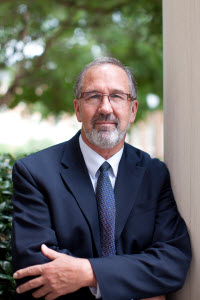By Daniel Wallace
The problem isn’t that they can’t find jobs. The problem is the jobs they find don’t support their families’ basic needs.
Welcome to the plight of America’s working poor.
“As long as the economy is struggling the way it is now, many people who find a job are not going to get a good job,” said Jennings Marshall, professor of economics at Samford University.
Despite signs of the nation’s economic recovery, estimates are that nearly 48 million Americans now belong to families classified as working poor.
“Although many people are returning to work, they are often taking jobs with lower wages and less job security, compared with the middle-class jobs they held before the economic downturn,” according to a recent report released by the Working Poor Families Project.
The project estimates that nearly a third of all working families do not have enough money to meet basic needs.
And “despite their effort … working families are mired in low-wage jobs that provide inadequate benefits and offer little opportunity for advancement and economic security,” the study has found.
The lose-lose situation of the working poor is a growing challenge for churches and ministries who have traditionally worked with impoverished populations. Unlike the homeless or unemployed, those with jobs often find themselves disqualified from government and nonprofit aid open to those without income.
Organizations like the Christian Activities Center in East St. Louis, Ill. also notice that clients who do work are often judged for being lazy because of their desperate financial situations.
“For most people, ‘working poor’ is an anomaly,” said Drew Phillips, the chaplain at CAC, and a recently appointed Cooperative Baptist Fellowship field missionary. “I know more single-parent mothers working, and in between work, than I do non-working. That is not the image that is portrayed.”
Phillips’ work consists mainly of assisting with the education and spiritual health of inner-city children. The Working Poor Families Project said there are 10.4 million such families in the United States.

The CAC is “actively engaged in keeping kids in school, keeping them busy and helping [the kids] define themselves by who God created them to be, rather than their ZIP code,” Phillips said.
Samford professor Marshall said the church has a great opportunity to step in and help the working poor, if only the people in the church would change their mindset regarding the issue.

“Historically, the churches have helped the people who are in poverty,” Marshall said. “Increasingly, people have expected the government to do that and turned away from churches. That’s not the right way to look at it.”
At the heart of the issue is the need for Christians to respond to the working poor the way Jesus did, Marshall said.
“Christ came and spent his time with the poor, disadvantaged and impoverished,” he said. “That’s where his concerns were, and that’s where ours need to be.”
